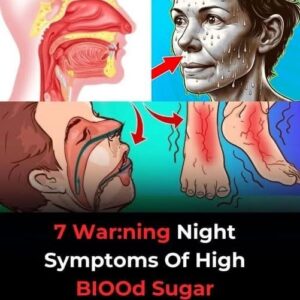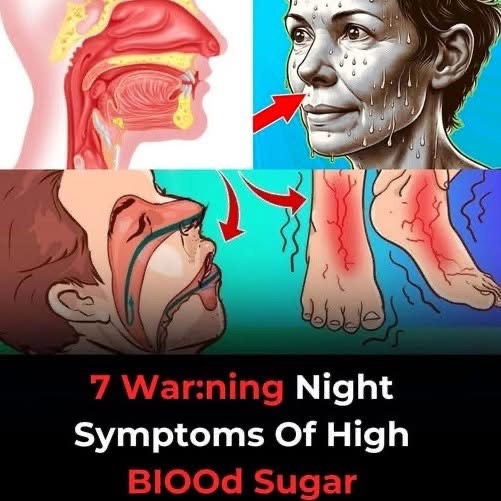
High blood sugar, commonly linked to diabetes, can present warning signs prior to an official diagnosis. With the prevalence of diets rich in processed foods, it is essential to prioritize awareness and education in recognizing and addressing these symptoms.
*Please note that we do not aim to provide medical advice. The information contained in our materials is intended solely for informational purposes. We strongly recommend consulting healthcare professionals for guidance.
Tingling and numbness in specific body areas may indicate high blood sugar and neuropathy, a type of nerve damage associated with it.
Do you suffer from high blood sugar? Let us know in the comments below.Elevated blood sugar levels place significant stress on the kidneys, compelling them to exert more effort in filtering and absorbing excess glucose. This process requires an increased flow of fluids to facilitate the elimination of sugar through urine.
- Dry and Itchy SkinItchy skin is frequently linked to poor blood circulation, particularly affecting the lower legs.
- Constant HungerWhile a robust appetite can be typical for some individuals, a deficiency in the hormone incretin may lead to heightened hunger and a quicker rate of stomach emptying, which can potentially elevate blood sugar levels.
- Accumulation of Abdominal FatPersistent feelings of hunger may suggest elevated blood sugar levels, as the ingested food does not provide adequate energy to sustain your cells.
- Nerve DamageIncreased blood sugar levels can harm the nerves and the blood vessels that supply oxygen and nutrients, leading to possible nerve-related issues.
- Skin AlterationsChanges in skin color and the appearance of growths may signal high blood sugar, including dark, thick patches on the neck and hands.
- TinglingSensations of tingling and numbness in certain areas of the body may indicate high blood sugar levels and neuropathy, a form of nerve damage associated with this condition.
Do you experience high blood sugar? Share your thoughts in the comments below.
